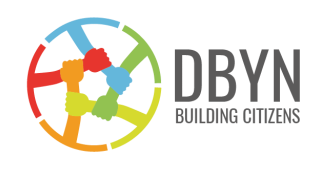|
Education plays an essential role in the promotion of the core values of the Council of Europe: democracy, human rights and the rule of law, as well as in the prevention of human rights violations. More generally, education is increasingly seen as a defence against the rise of violence, racism, extremism, xenophobia, discrimination and intolerance. This growing awareness is reflected in the adoption of the Council of Europe Charter on Education for Democratic Citizenship and Human Rights Education by the Organisation’s 47 member states in the framework of Recommendation CM/Rec(2010)7. The Charter is an important reference point for all those dealing with citizenship and human rights education. It will hopefully provide a focus and catalyst for action in the member states. It is also a way of disseminating good practice and raising standards throughout Europe and beyond.
0 Comments
The Charter of Fundamental Rights of the EU brings together in a single document the fundamental rights protected in the EU. The Charter contains rights and freedoms under six titles: Dignity, Freedoms, Equality, Solidarity, Citizens' Rights, and Justice. Proclaimed in 2000, the Charter has become legally binding on the EU with the entry into force of the Treaty of Lisbon, in December 2009. Young people have been hit particularly hard by the economic crisis of 2008 and its aftermath and increasing numbers face long-term unemployment, discrimination and poverty. This new strategy aims to make sure that Erasmus+ tackles the challenges facing young people effectively
The European Union is taking active measures to help some of the most vulnerable people in society: young people who lack the opportunities of their peers. Targeting young people with fewer opportunities has long been a pillar of the European Union's work in the field of youth, notably through project funding for organisations working in this area.
Within the heritage of Don Bosco, the partners of Don Bosco Youth-Net strive together to realize the following aims:
To put these aims into practice, we develop Master Plan for the period of 3 years. The current master plan determines our strategy for the period 2015 – 2017 . Under the 4 strategic actions we are focussing on 4 fields of work: Education, Inclusion, Growth and Synergy. |
- Home
- About
-
Training
- Upcoming activities >
-
Past activities
>
- Youth Guardians
- Rise: Design for emergent futures
- Mental Health in Youth Work
- Yout(h)echnology
- European School of Animators 2023
- The Future is Europe
- Voices of Youth 2022
- Educate to Elevate Youth
- SoS-Safeguarding
- Play It Covid-Safe!
- Coping over coffee
- Statement Coronavirus
- I Youth Advocate
- Camino
- European Summer School of Animators 2019
- The Journey Never Ends
- European Summer School of Animators
- Ready, Steady, Go !
- Advocates for Education
- Common ground
- Rise Up !
- DB4R >
- En Route >
- All Alien
- You(th) for Human Rights
- Generations of Participation - Past training
- Advocacy
- Resources
|
The international secretariat of Don Bosco Youth-Net ivzw is financially supported by the European Union, through its 'Erasmus+'-programme, and by the Council of Europe, through its 'European Youth Foundation'. This website is a publication of Don Bosco Youth-Net ivzw. The website reflects the views only of the author, and neither the European Commission nor the Council of Europe can be held responsible for any use which may be made of the information contained therein.
|

